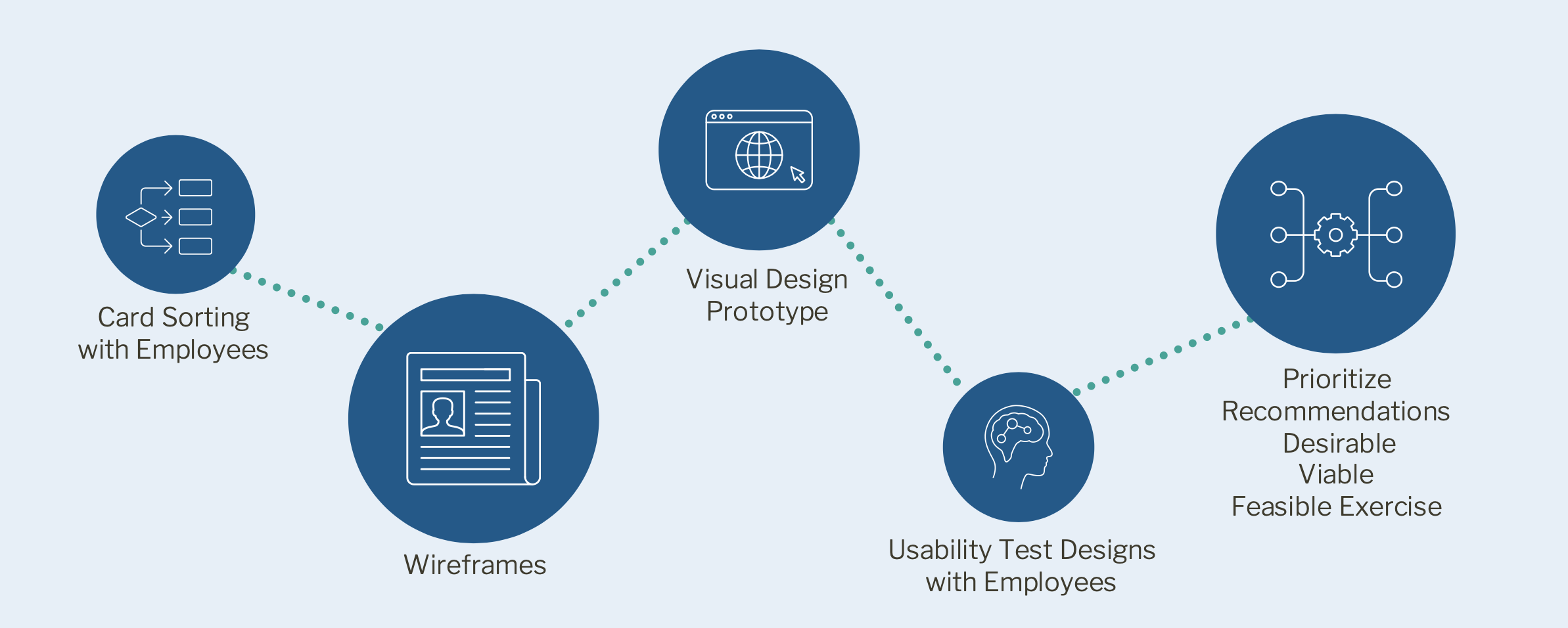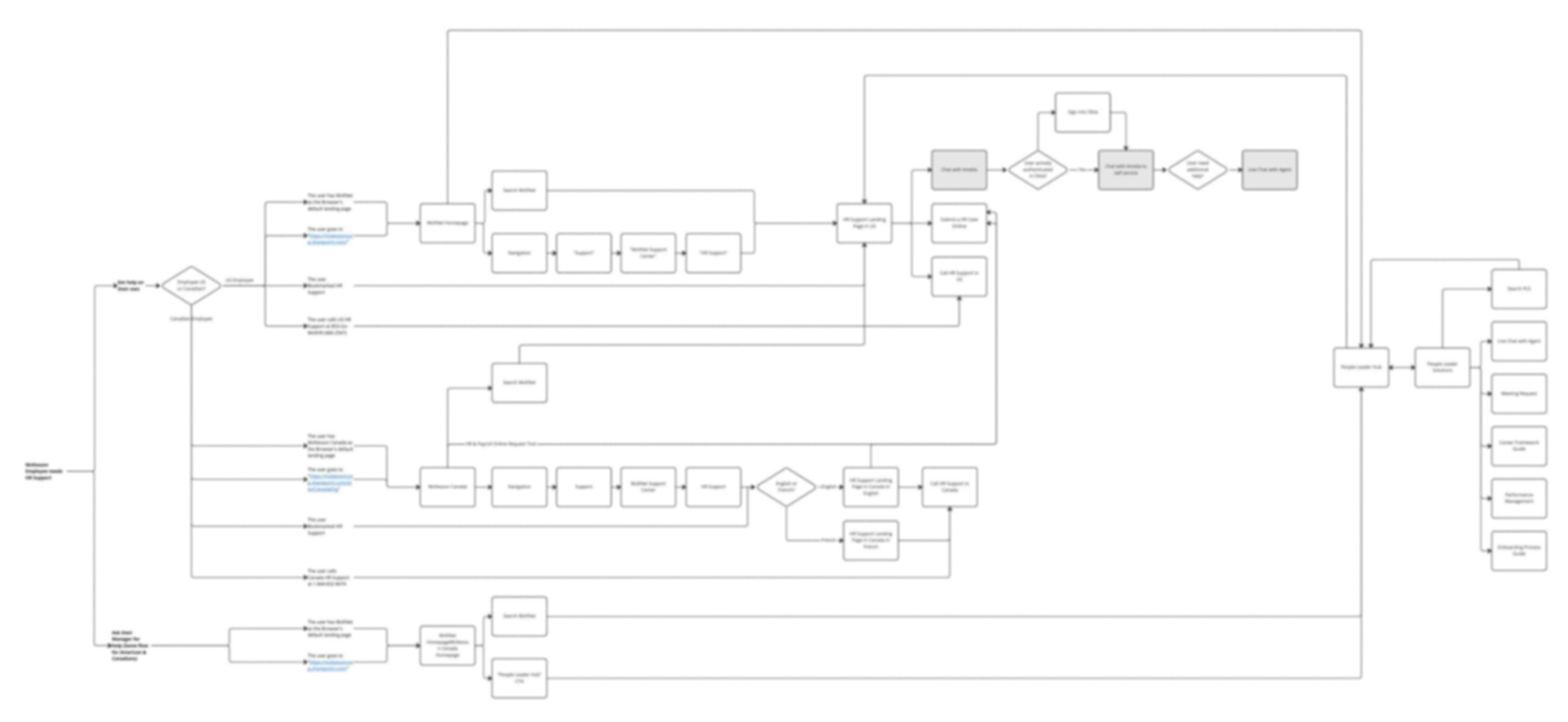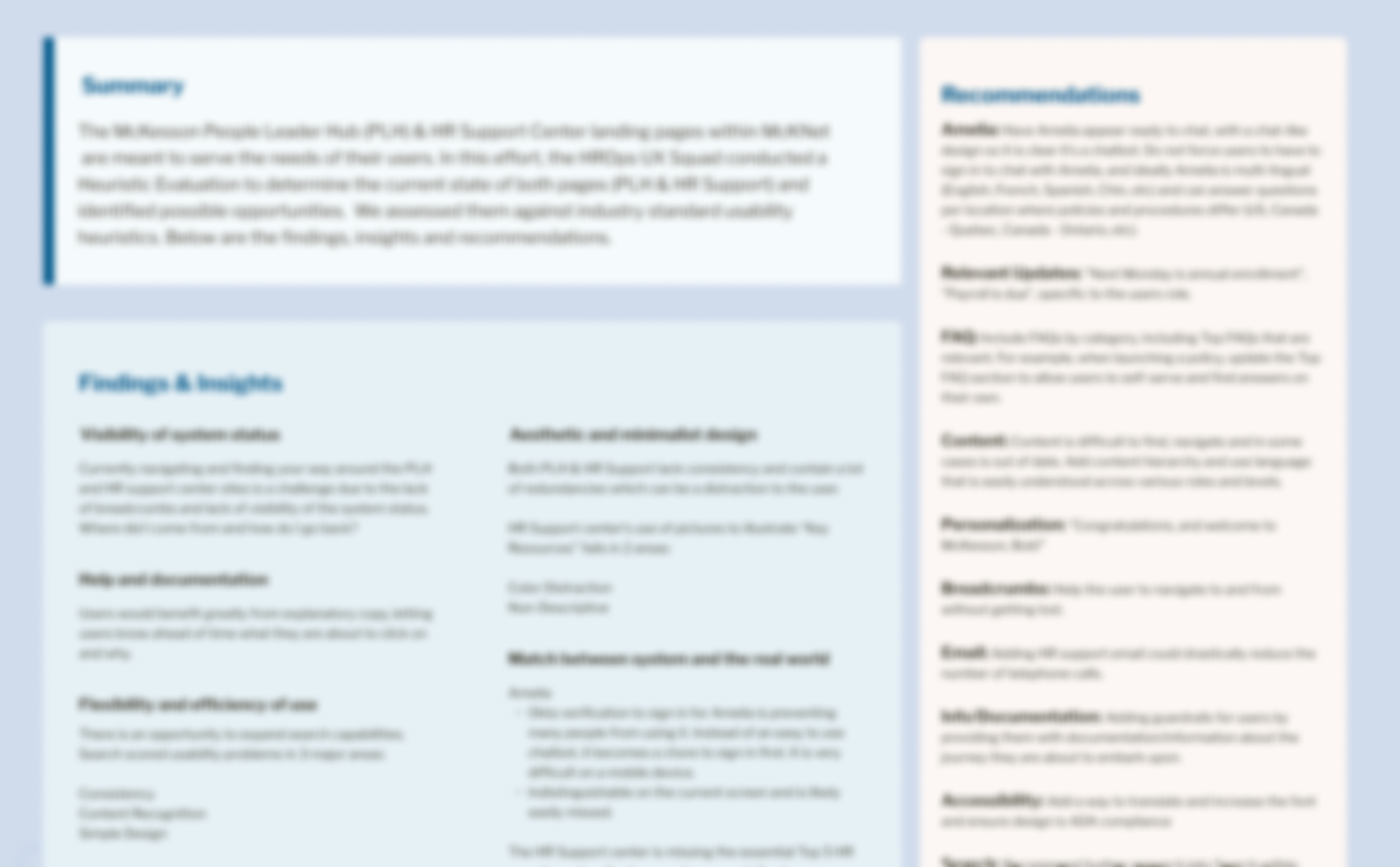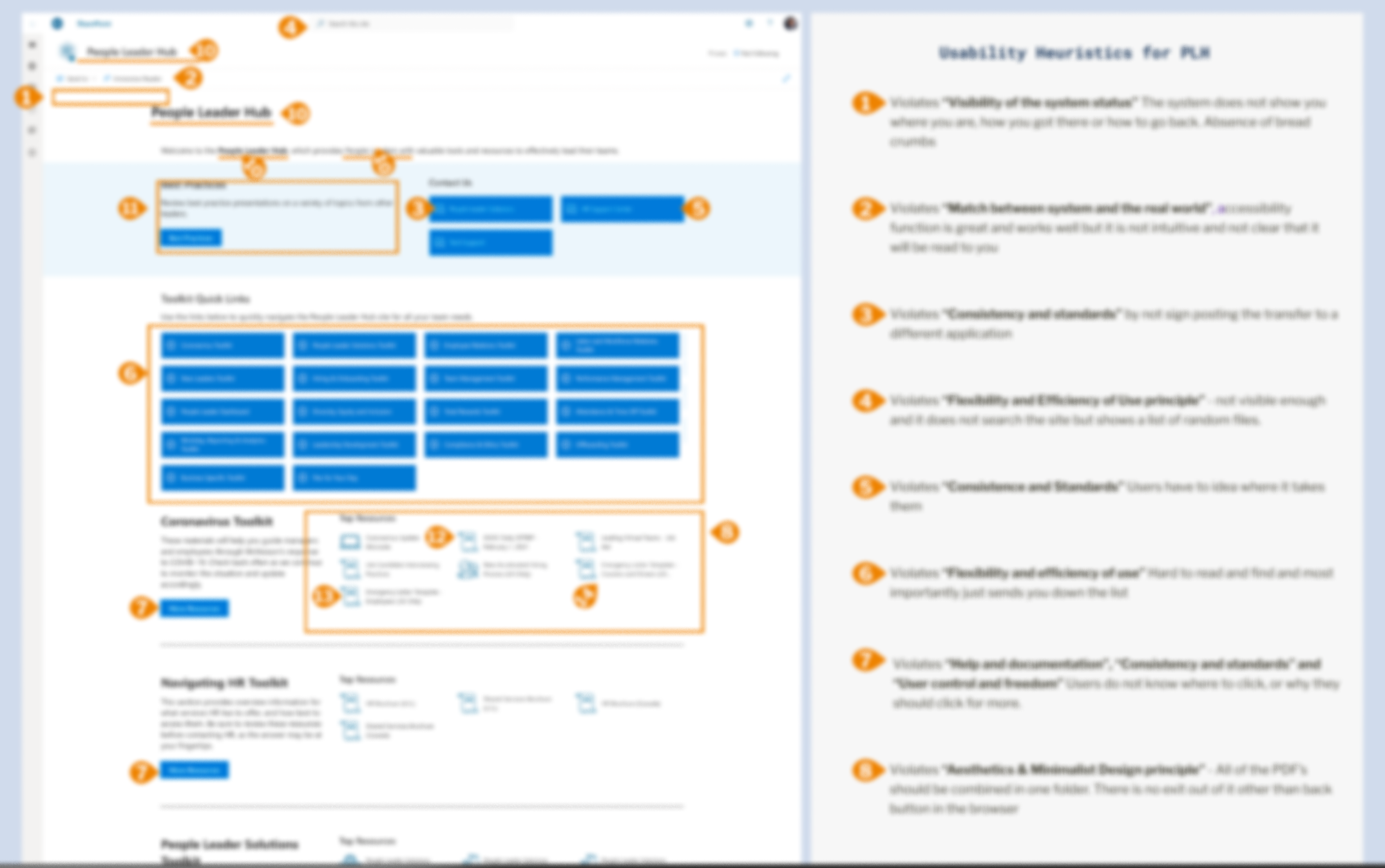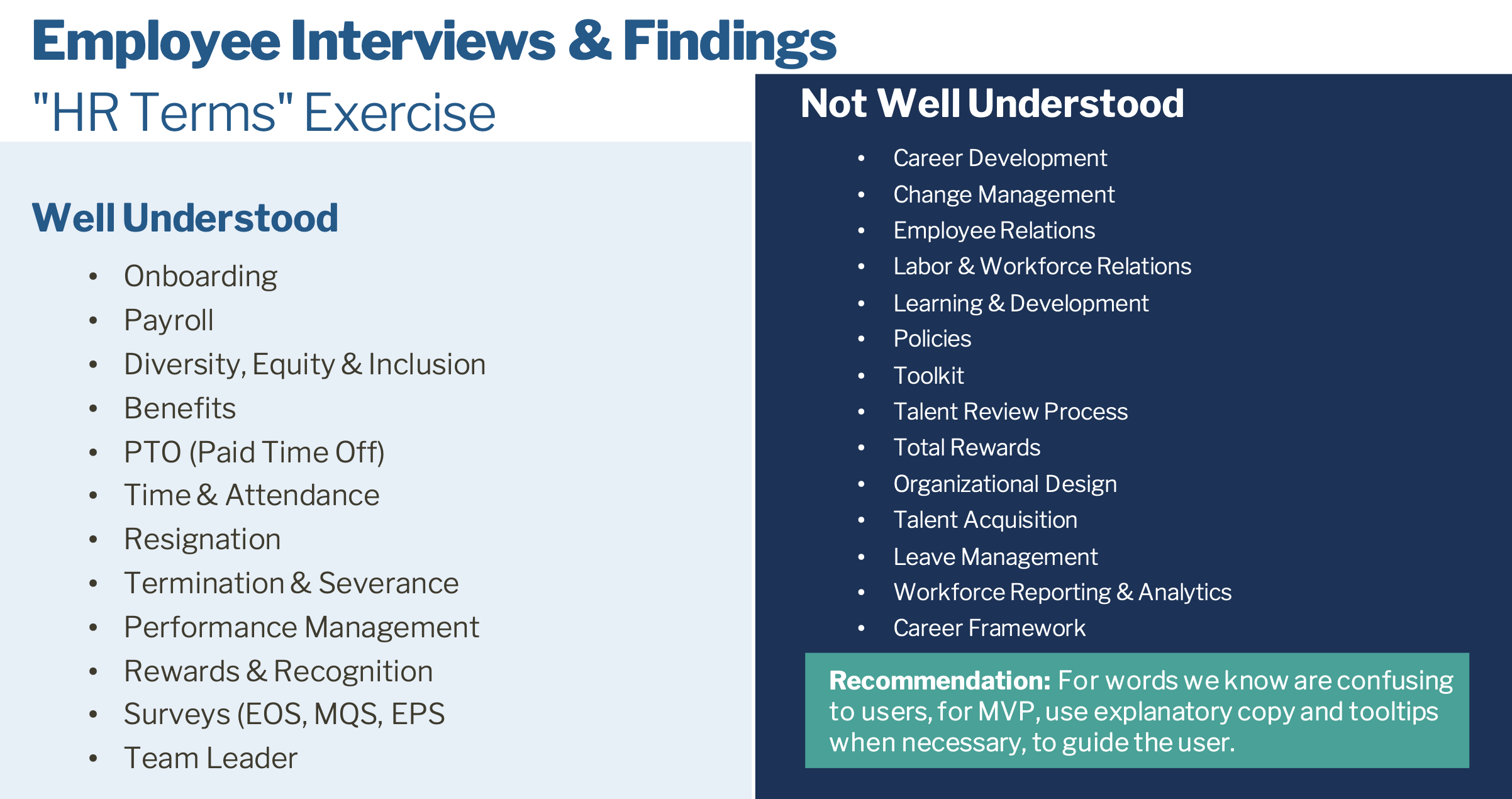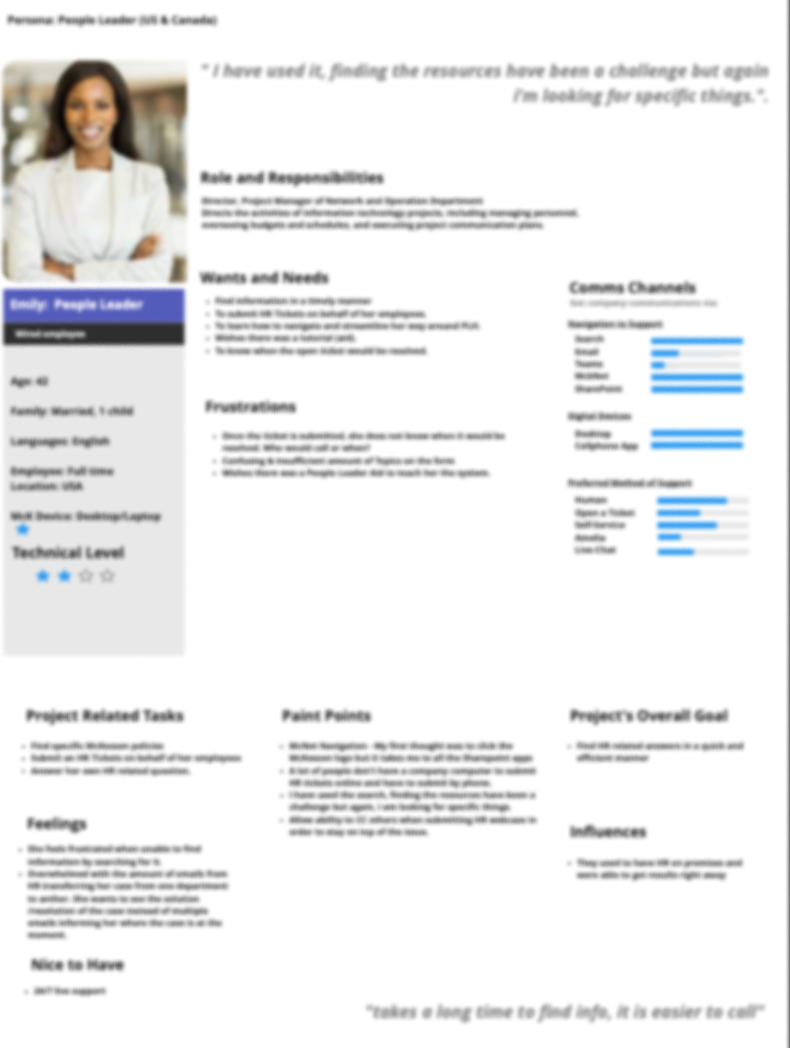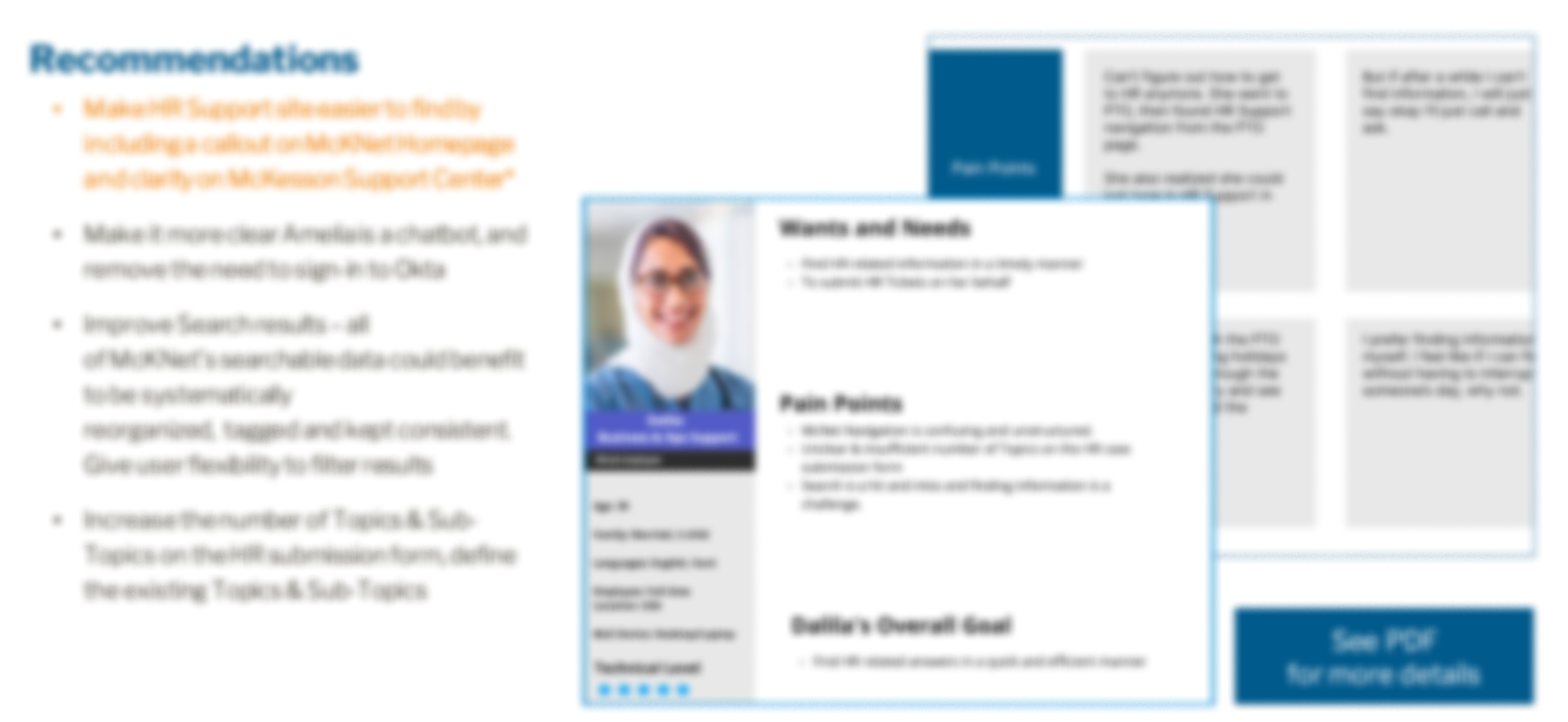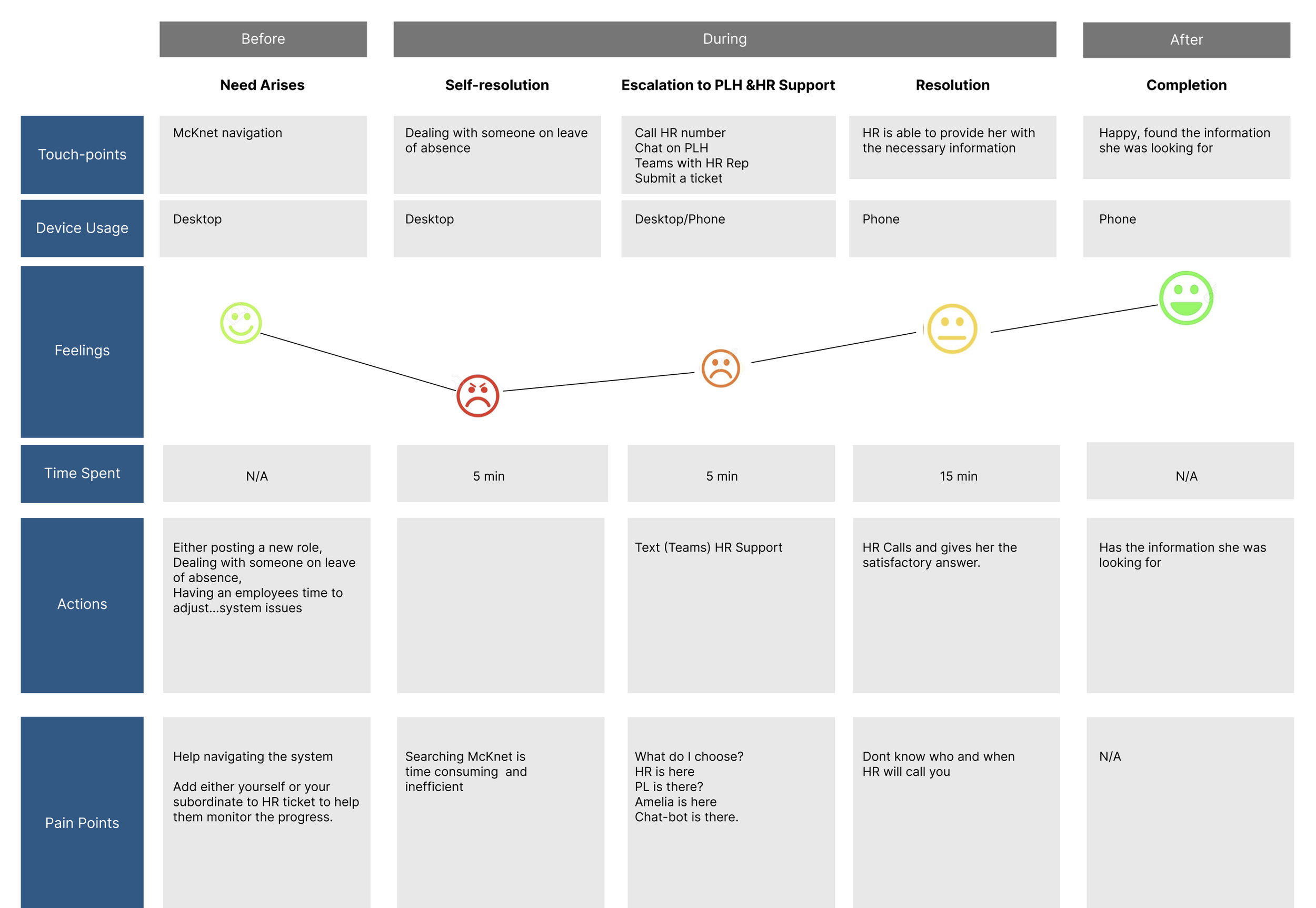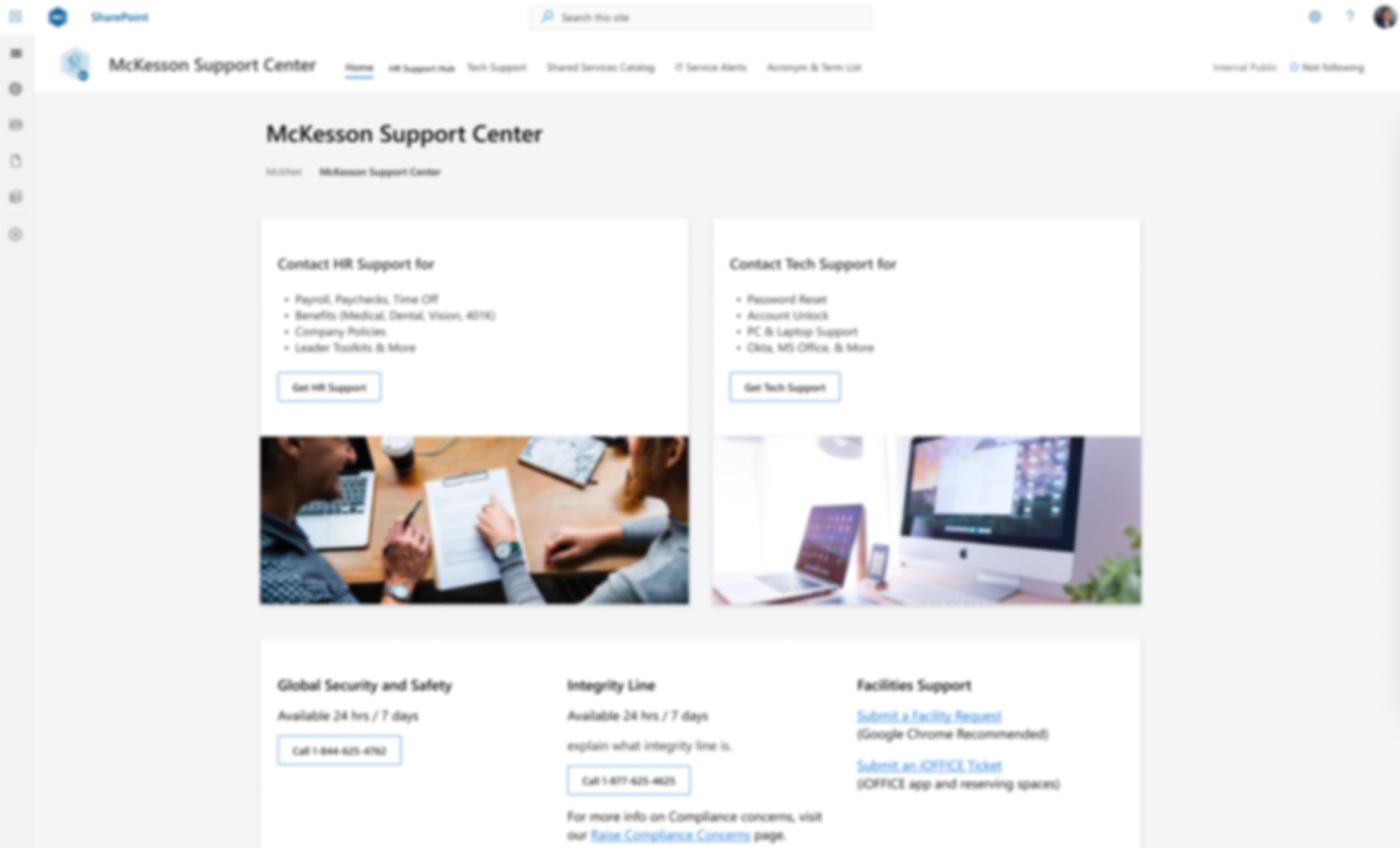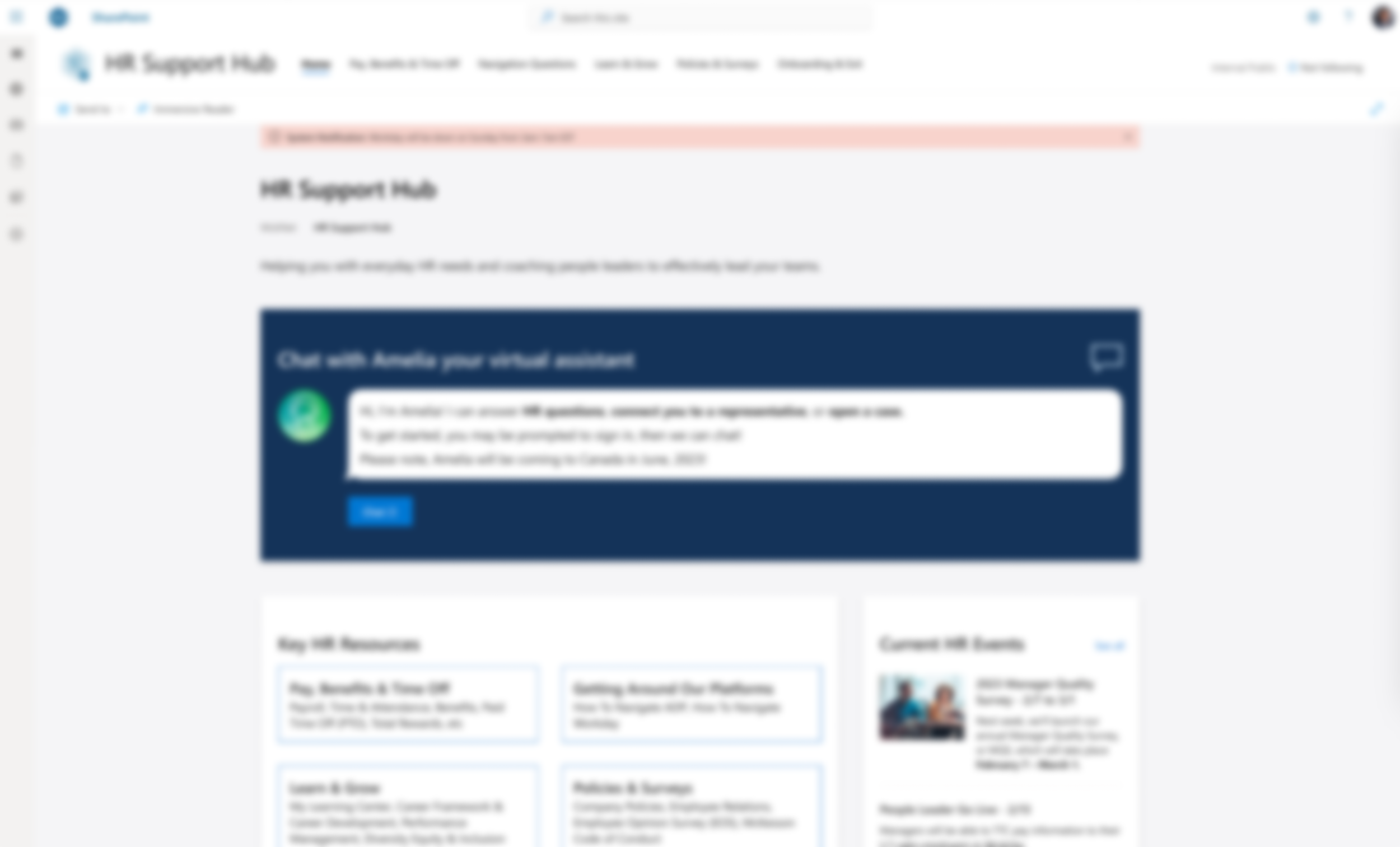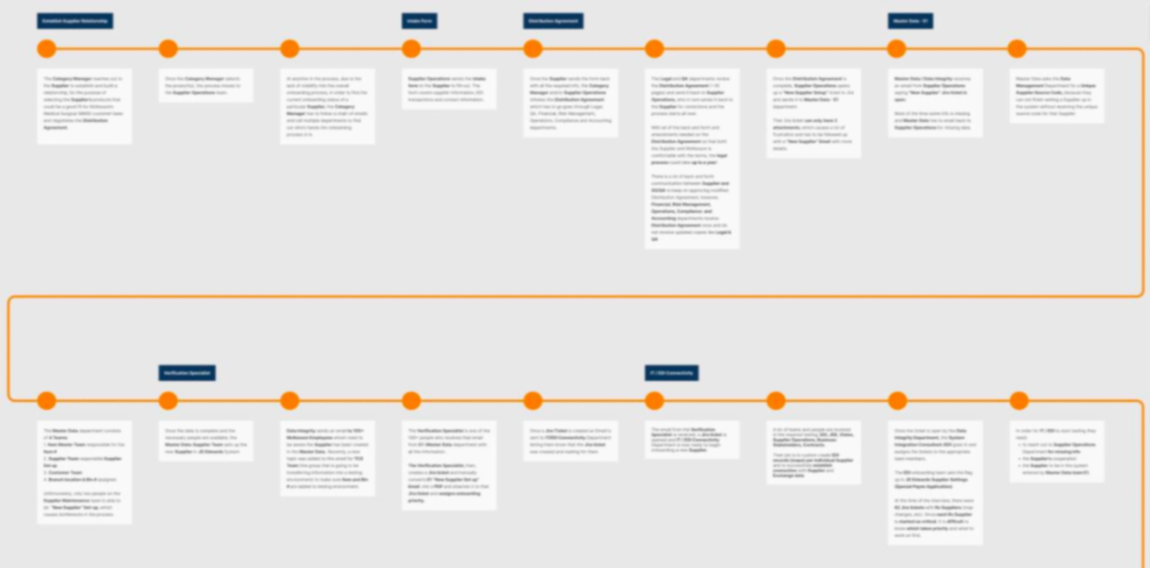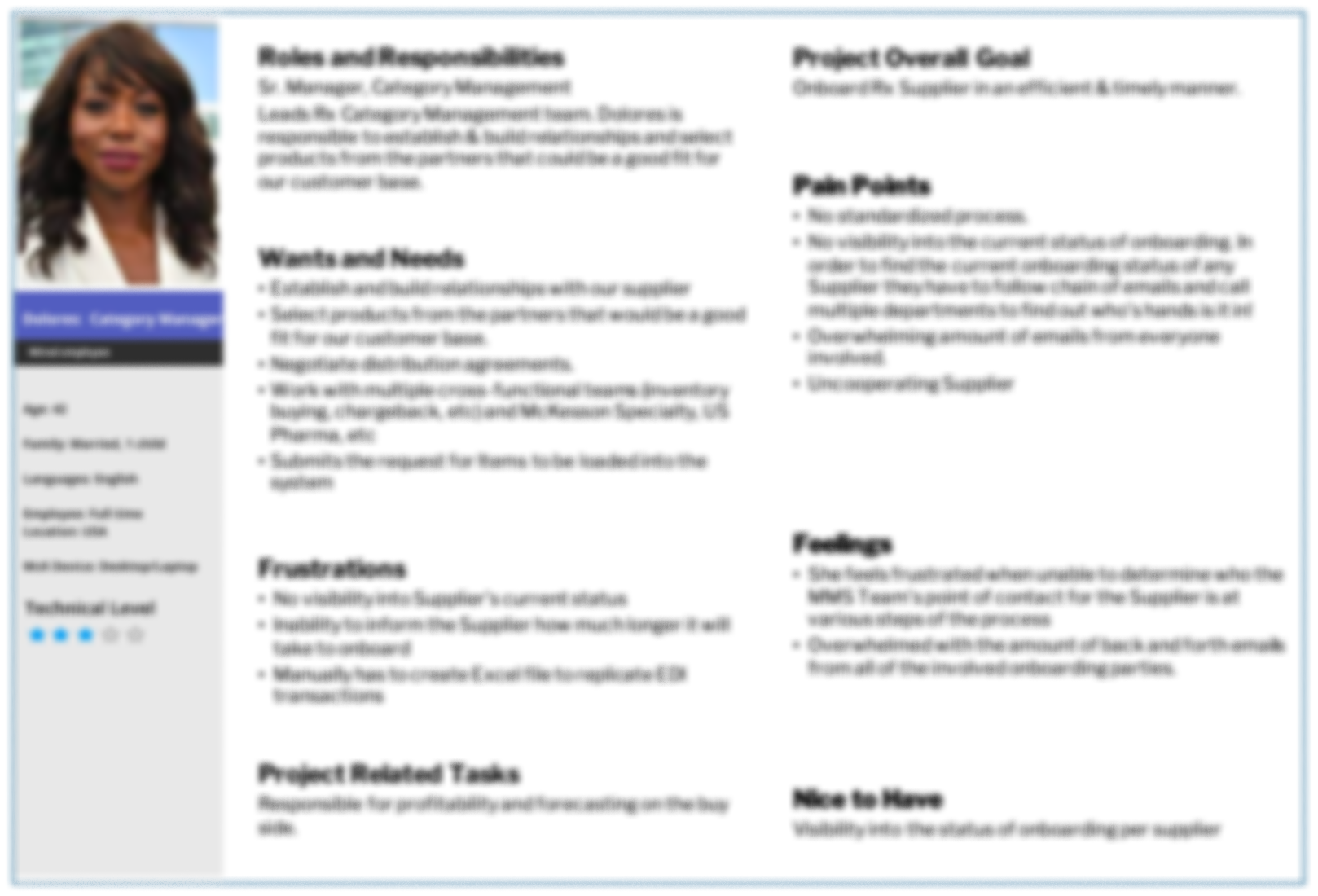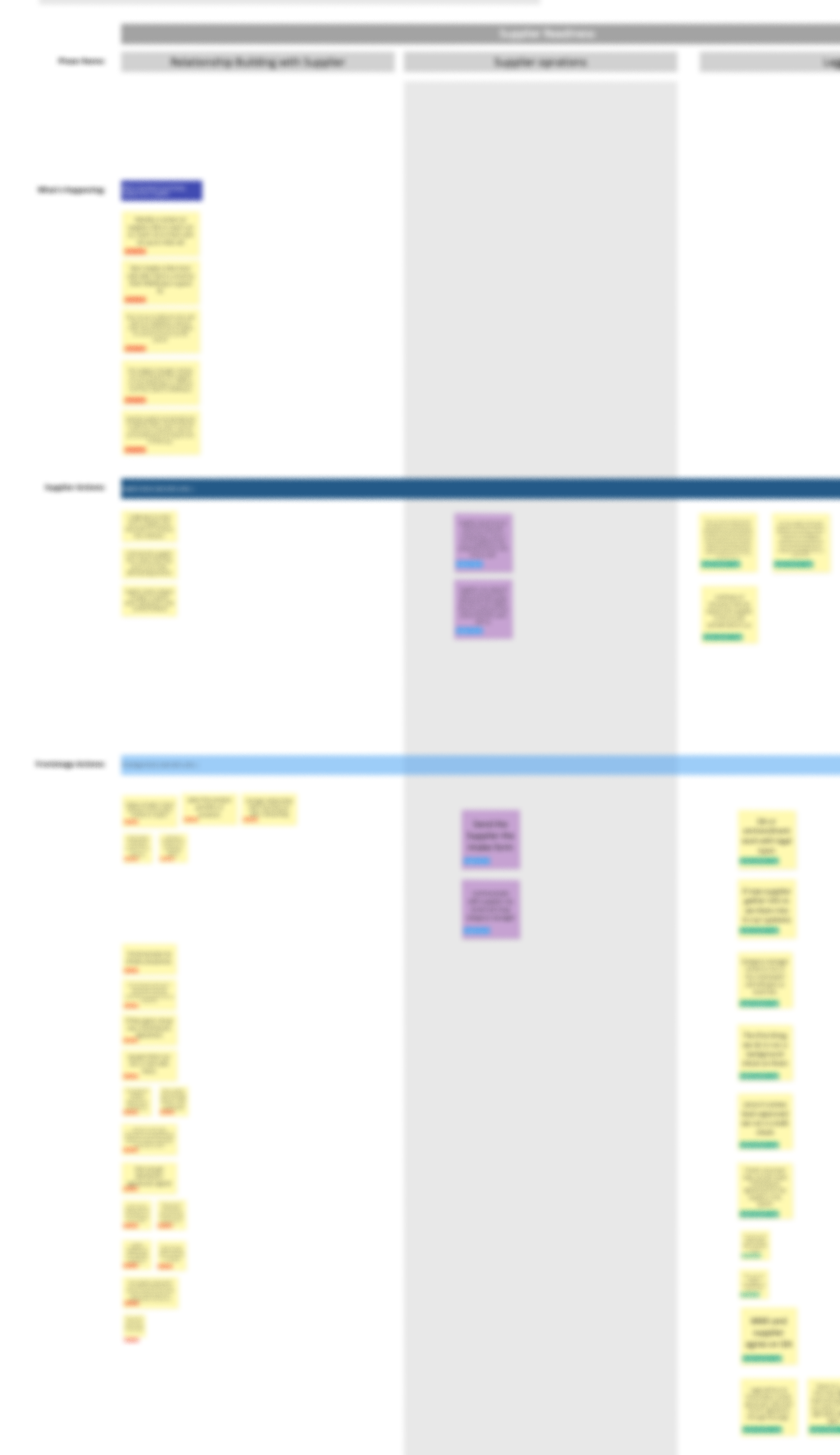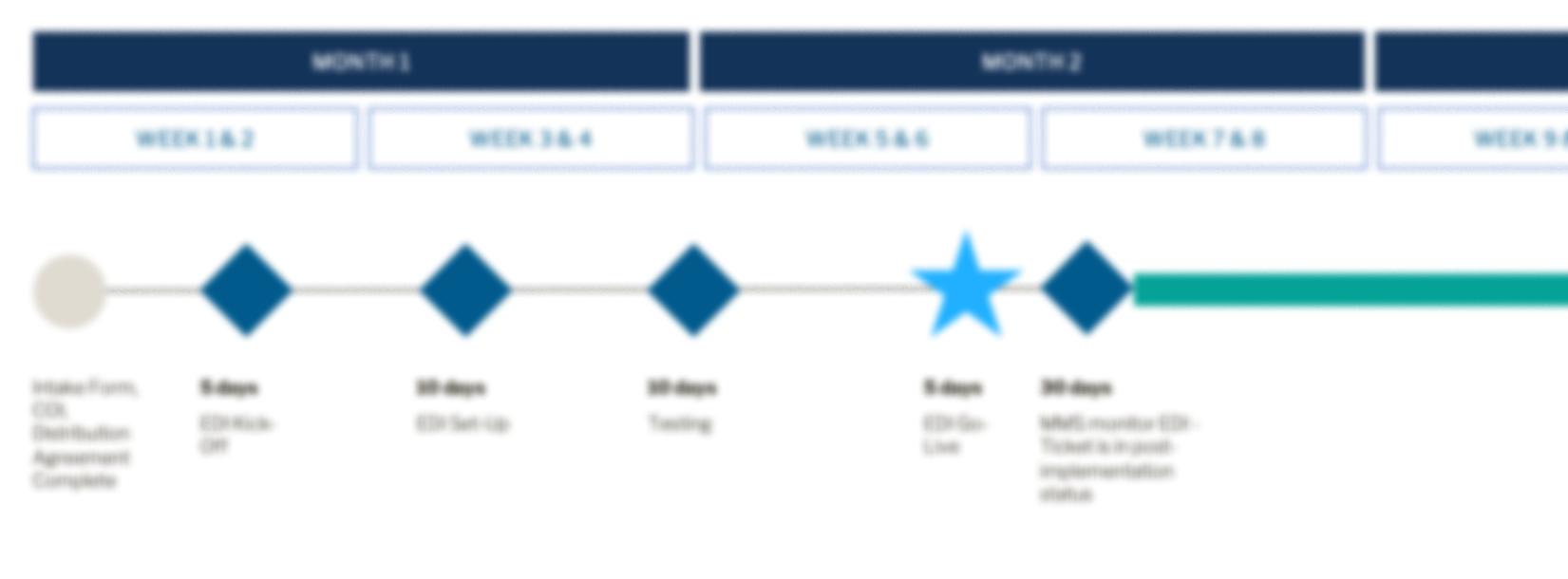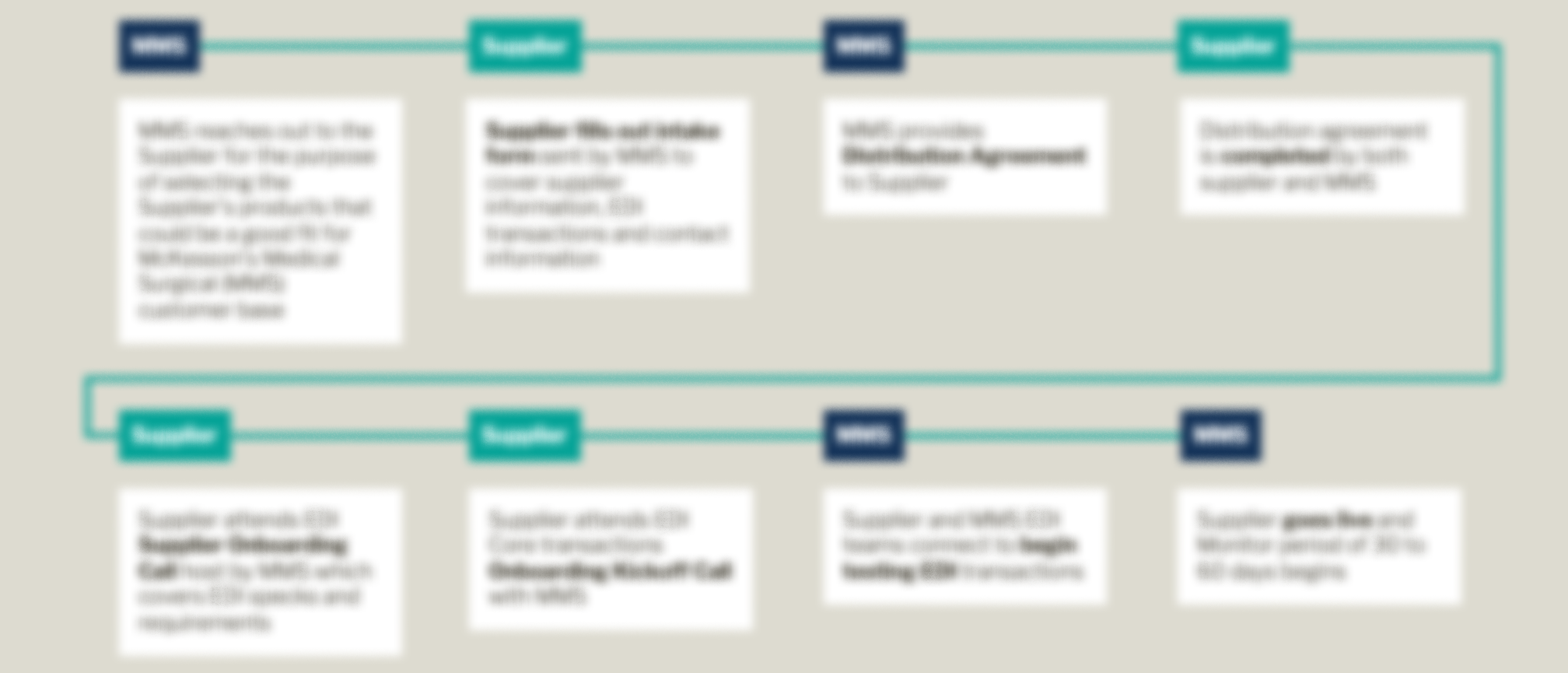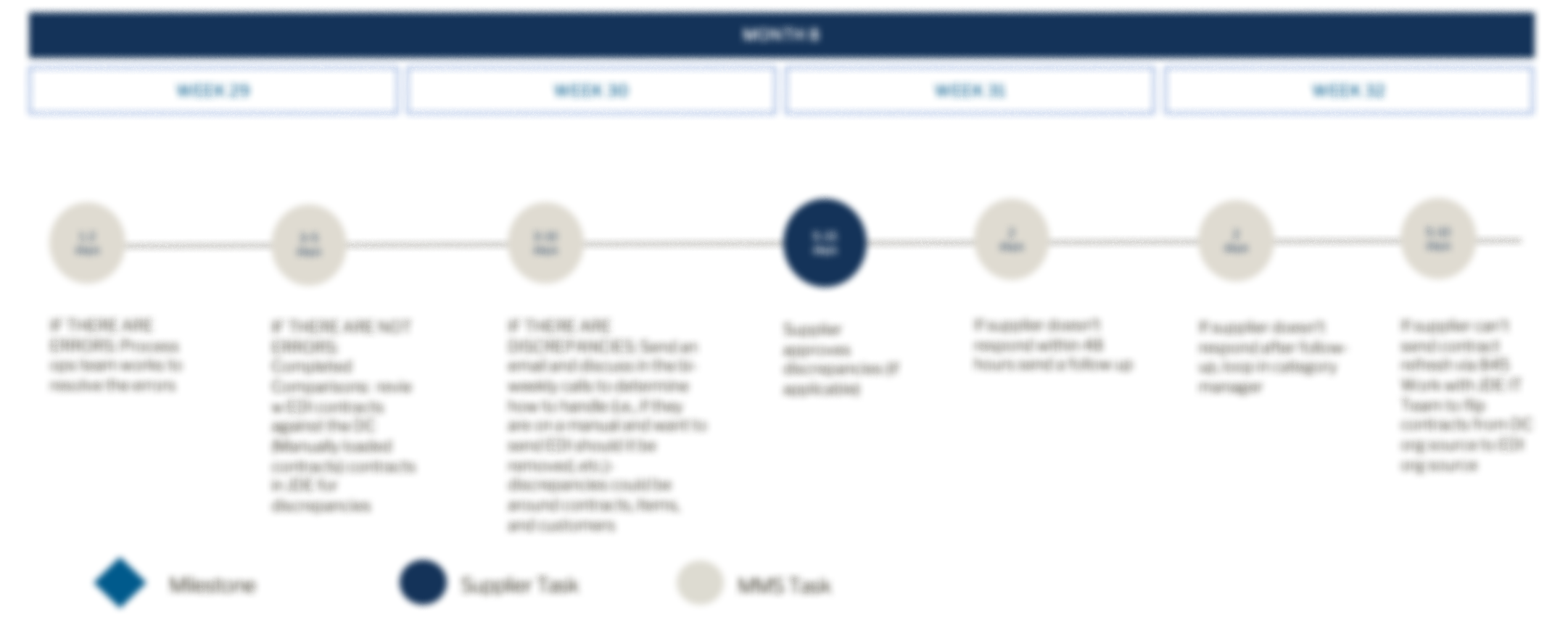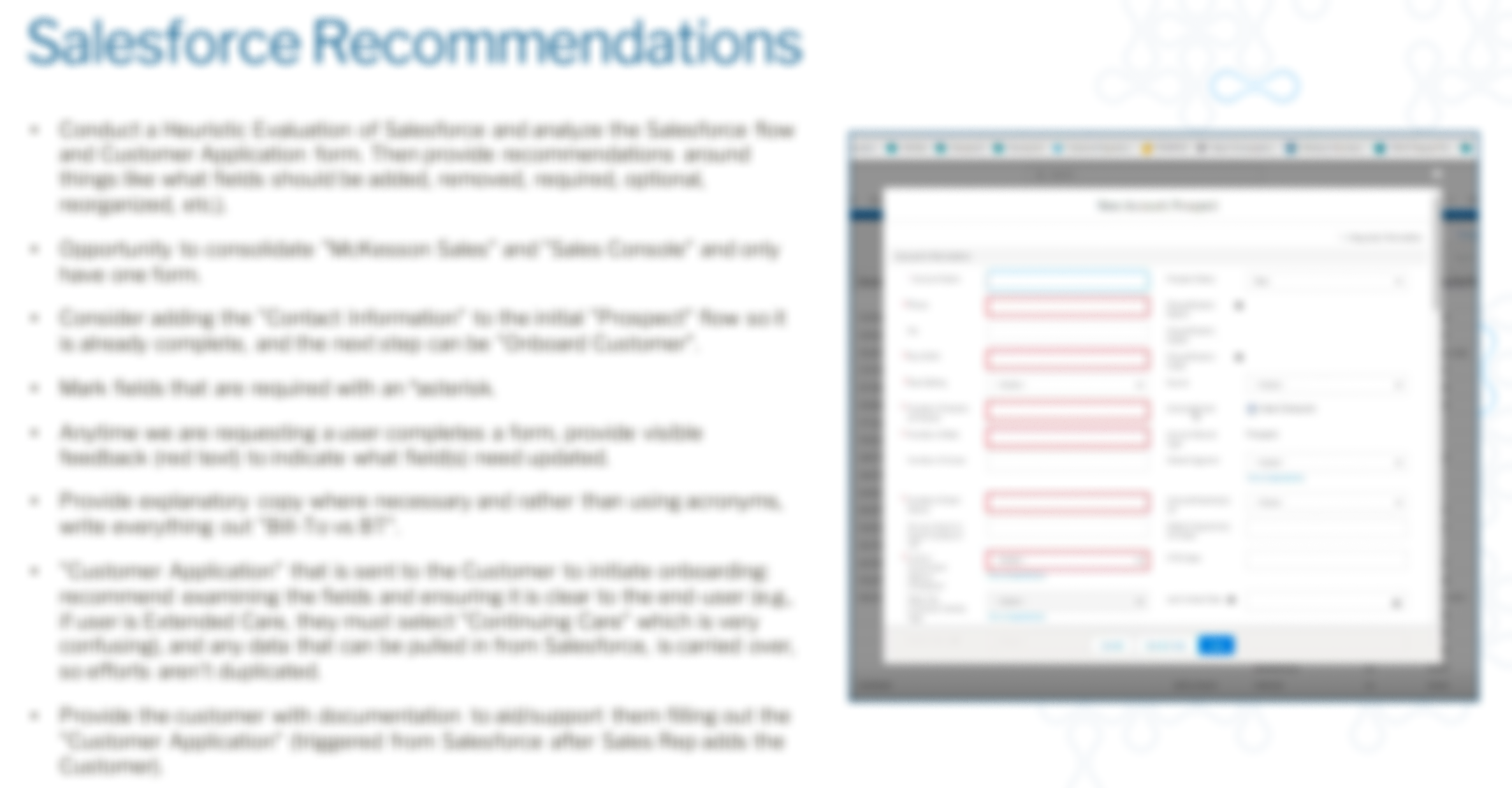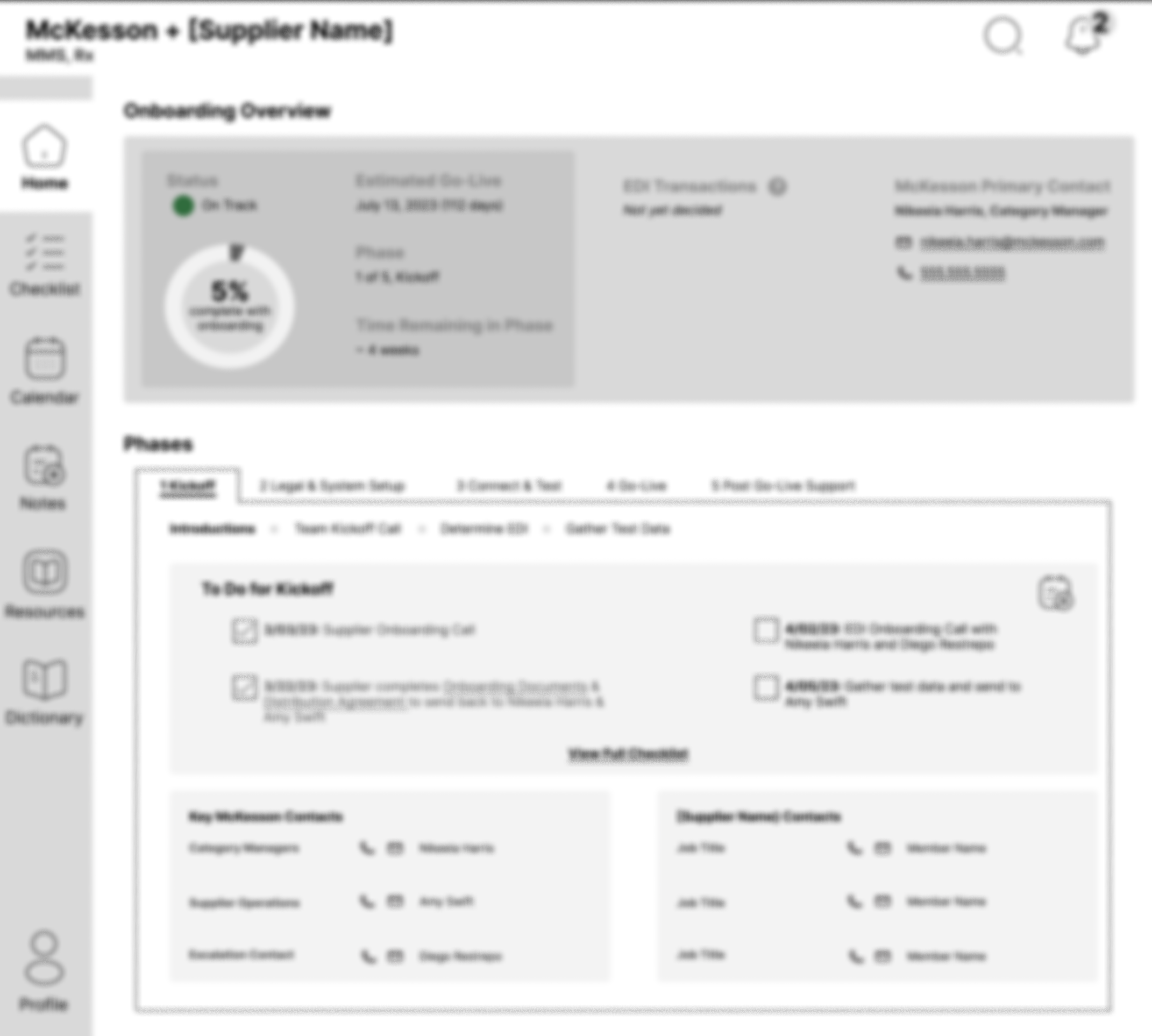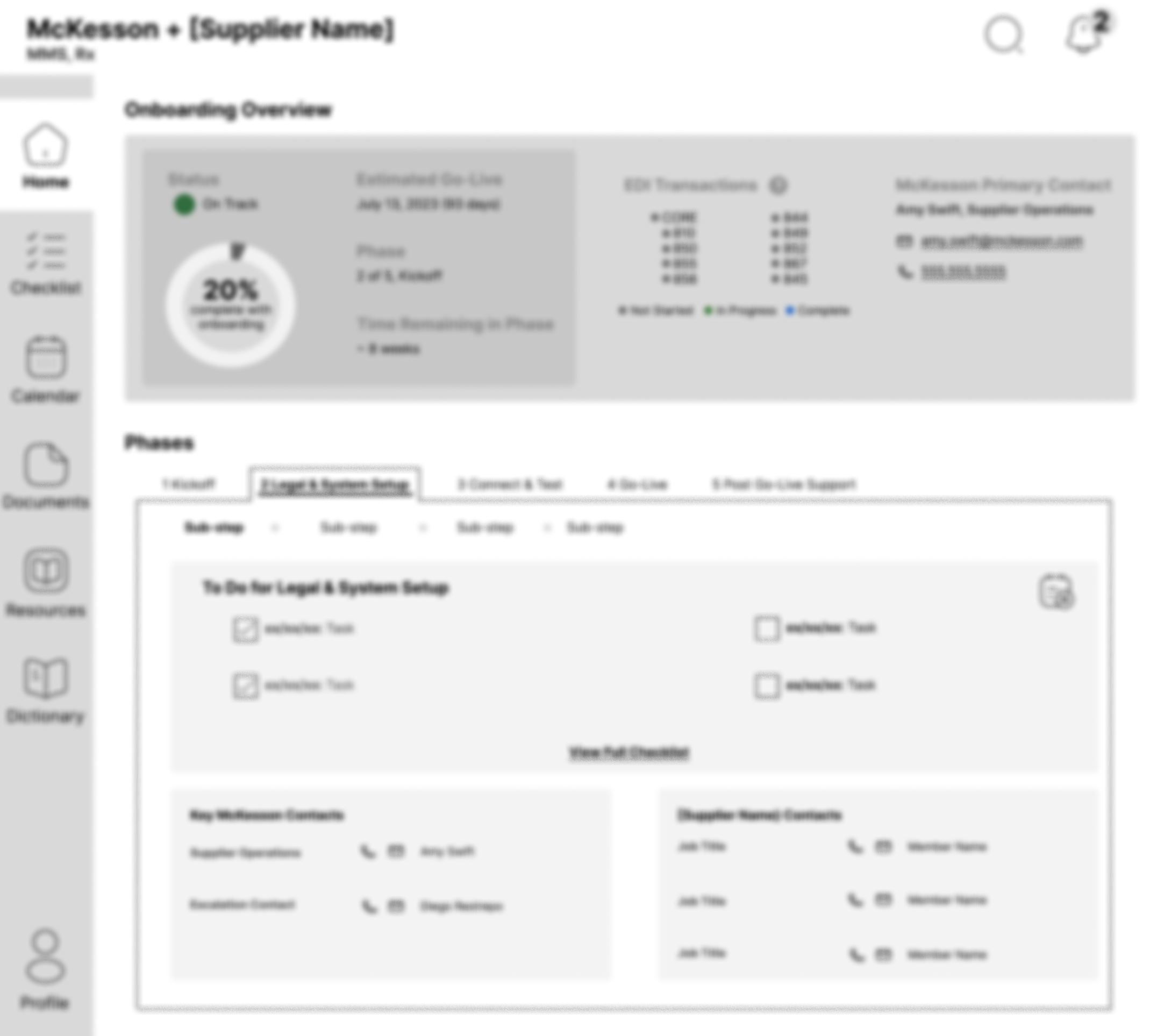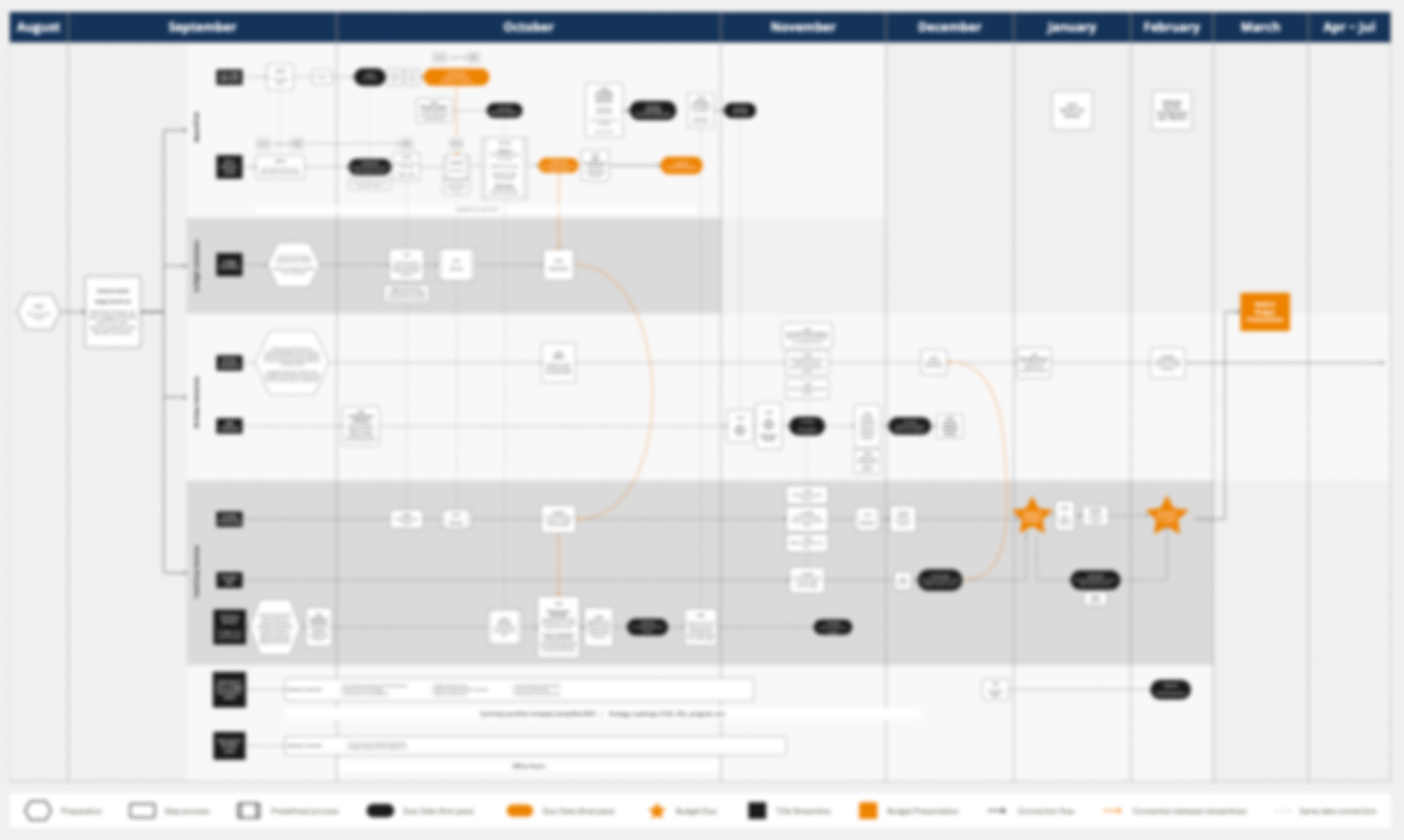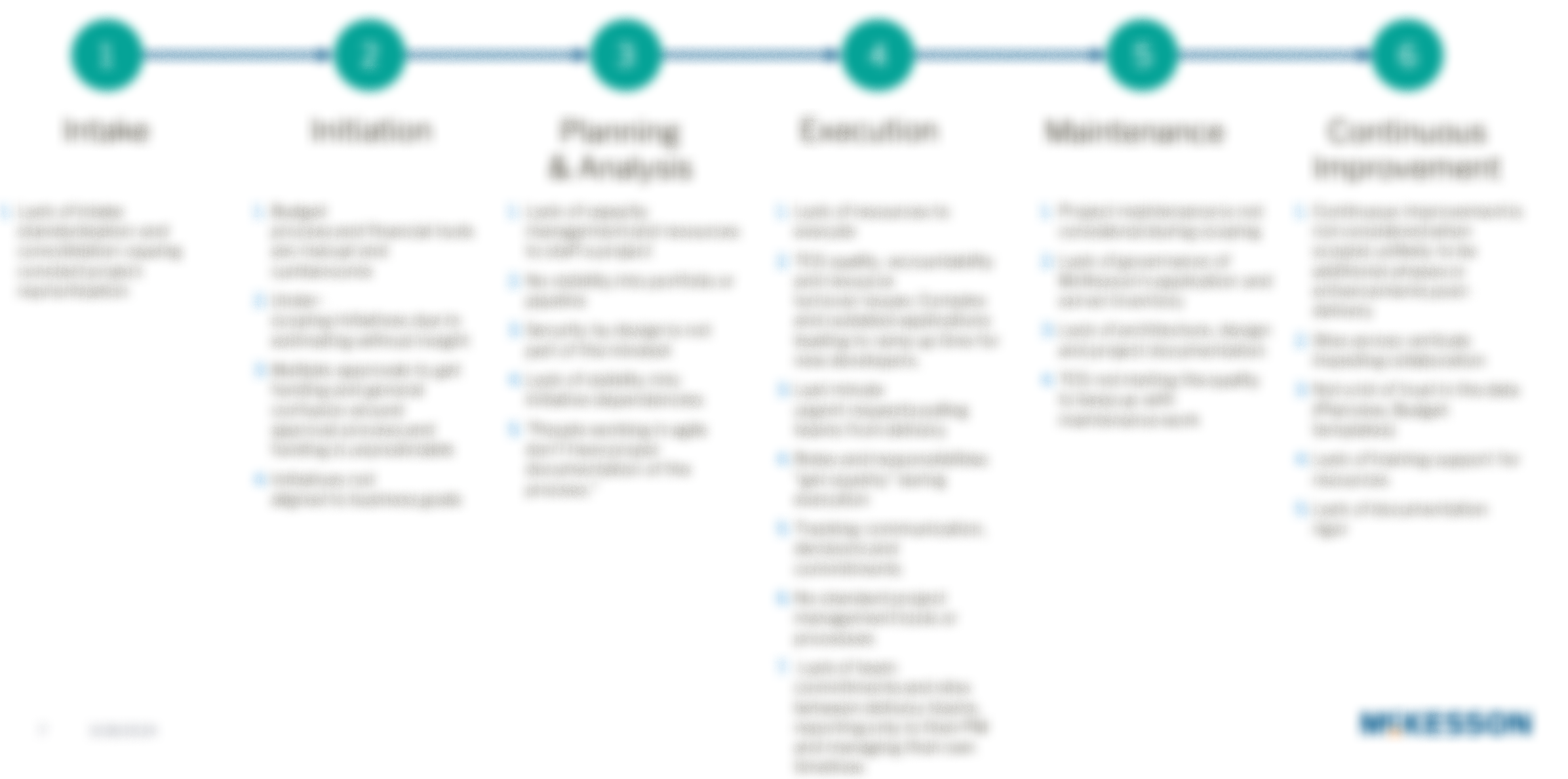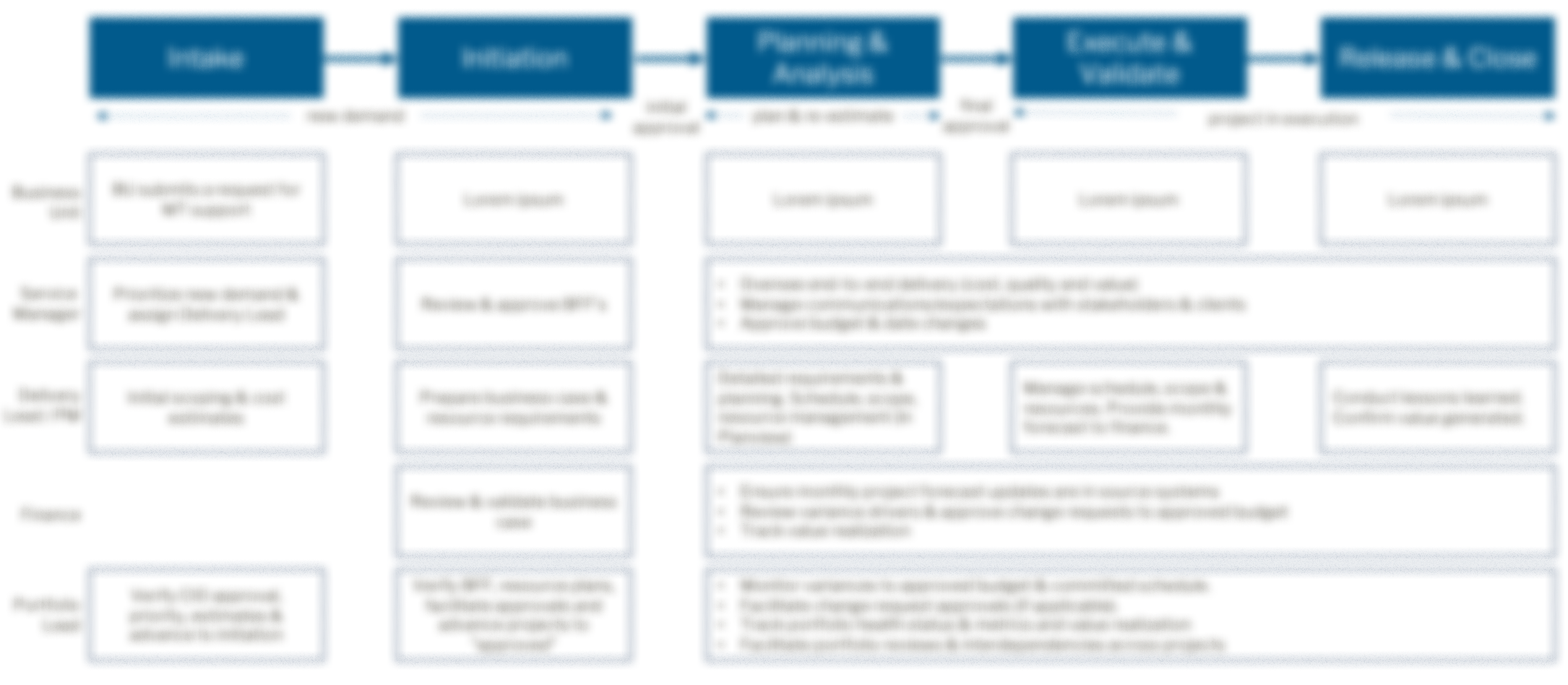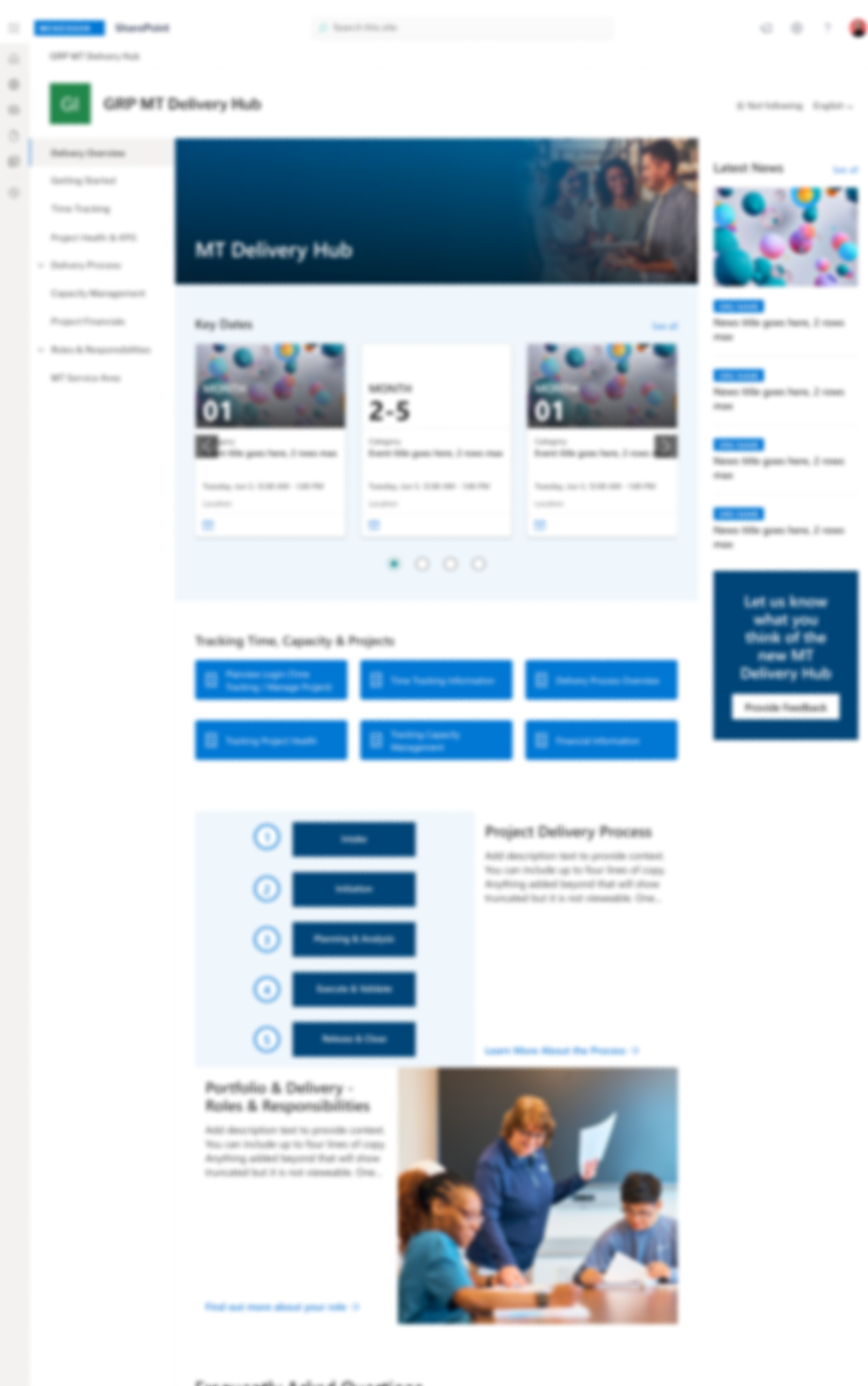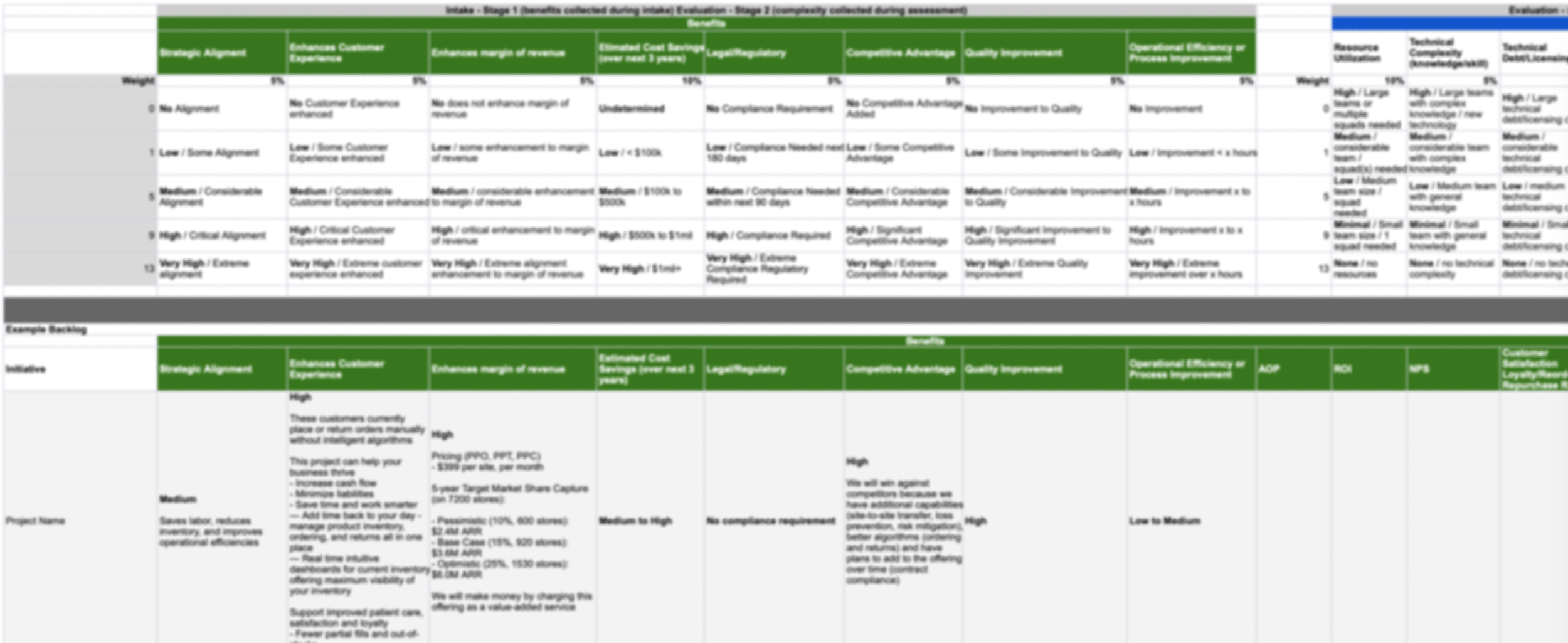The Partnership
As a UX Director at Randstad Digital, I oversaw the Innovation Pod during a multi-year strategic partnership with McKesson, a Fortune 10 healthcare company specializing in pharmaceutical distribution, medical supplies, and healthcare technology.
Our collective mission: to elevate customer and employee experiences across McKesson’s enterprise by building a Customer Experience Center of Excellence (CX CoE).
I led cross-functional UX pods composed of UX Researchers, UX Designers, UI Designers, and Six Sigma specialists, and partnered closely with product teams, development, and executive stakeholders to drive innovation and scale design maturity across the organization.
This collaboration supported McKesson’s commitment to operational excellence and innovation. My role spanned strategy and execution, ensuring that experience design helped power both internal transformation and customer success across McKesson’s global footprint.
Our innovation pod worked across multiple business units including PSaS (Pharmaceutical Solutions and Services), MMS (McKesson Medical-Surgical), HR (Human Resources), and MT (McKesson Technology).
Innovation Pod Lead / Lead UX
UX Lead – Innovation Pod (2022–2024)
Goals
Build a Customer Experience Center of Excellence across McKesson
Standardize design practices and deliver consistent, high-quality experiences for employees, customers, and suppliers.
Elevate Design as a Strategic Function
Advance design maturity, influence executive priorities, and deliver outcomes that drive transformation.
Enhance Key Journeys
Improve employee, customer and supplier products and processes to drive transparency, trust, efficiency and reduce customer support volume.
Foster Cross-Functional Innovation
Align UX, Six Sigma, product, tech, and legal teams to turn research into enterprise-wide improvements.
Challenges
Demonstrating Value
Proving ROI through a balance of qualitative insights and measurable outcomes.
Enterprise Complexity
Coordinating across siloed teams and business units with varying design maturity and priorities.
Technical and Design Constraints
Designing within limitations of legacy platforms like SharePoint and outdated structures.
Change and Stakeholder Alignment
Navigating org changes, shifting priorities, and resistance to new processes.
Scalability
Building repeatable UX systems and consolidating fragmented platforms across teams.
Key Metrics
Experience & Efficiency
Task success rates, time to completion, and user satisfaction (CSAT, surveys)
Reduction in support tickets and increased self-service
Adoption & Engagement
Platform usage analytics and onboarding conversion rates
Operational Impact
Time/effort saved through improved workflows
Better backlog prioritization and delivery outcomes
Strategic Influence
UX recommendations implemented and stakeholder satisfaction (NPS)
Cross-functional initiatives launched
HR Support Hub
Reimagining HR Support increases usage by 26% and increased awareness 1000%
“They (UX Design Pod) changed the game for our internal employees seeking assistance.”
What We Achieved
Redesigned the HR Experience
Unified HR Support and People Leader content into a single platform for 31,000+ employees, prioritizing self-service and clarity across regions.
Standardized Offboarding
Created a scalable termination checklist template for global use.
Informed by Research
Used interviews, workshops, and evaluations to develop personas, map user flows, and align design to business goals.
Built for Scale
Established reusable frameworks and validated designs through usability testing.
Key Improvements
A human-centered design approach helped empathize with and understand user needs through user interviews, usability testing and heuristic evaluation of current site, and card sorting exercises to restructure information.
Redesign and combination of multiple sites to create the new HR Support Hub.
Improved onboarding and offboarding processes for McKesson employees.
Decreased the number of calls and tickets with the Customer Support Center.
Key Metrics
Taking a human-centered design approach increases HR Support Center awareness by 1000%.
Drove usage up by 26%, saving approximately $500,000 per year.
Inspired a new excitement around user experience (UX) in McKesson.
Current State User Flow
Heuristic Evaluation
Terms Exercise
Personas
User Journeys
Final Designs
“I love the new [HR Hub] website, very helpful and easy to use!”
Key User Quotes
“I cannot wait to share with my leadership team. Great stuff, thank you!”
Improve Onboarding for Customers & Suppliers
Onboarding improvements reduce EDI (Electronic Data Interchange) “setup to product sales cycle” by 50%
The Challenge
McKesson needed to improve complex supplier and customer onboarding processes by reducing cycle time to complete EDI connectivity and enhance visibility, scalability, and responsiveness by leveraging a work management solution to centrally track and manage onboarding across teams and workflows in one place. The existing experience lacked clarity, consistency, and failed to meet user expectations.
Through stakeholder workshops, employee and supplier interviews, and iterative design, we identified key gaps in usability, communication, and engagement.
Our goal was to ensure the solution was both desirable for users and viable for the business—a challenge validated by supplier feedback indicating the new approach would have influenced vendor selection decisions.
Solution & Impact
We conducted in-depth research through stakeholder workshops and one-on-one interviews with suppliers and employees to understand onboarding pain points and expectations. Using insights from user journeys, personas, and iterative testing, we designed high-fidelity solutions tailored to real user needs.
Phased improvements streamlined onboarding for Rx suppliers and enhanced the EDI experience for Extended and Primary Care customers. Ongoing efforts focused on boosting supplier readiness and engagement.
Results
50% cycle-time reduction to onboard a new Supplier within six months
Increased Rx product portfolio to 13 Specialty Rx products with a projected first year sales of $9.5M.
A more intuitive, efficient onboarding experience that not only improved usability but strengthened McKesson’s vendor relationships—validated by direct supplier feedback praising the solution’s influence on decision-making.
Experience Map & Personas
Process Mapping
Actionable Recommendations
Proof of Concept
“This is perfect. If you would have had this solution when we were deciding who to go with, this would have swayed our decision making process.”
Budget and Portfolio (PMO) Process Improvement
UX Director/Lead UX overseeing a UX Squad to analyze and improve the budget and portfolio processes for MT (McKesson Technology) team
The Challenge
Budget Process (MT FY Budget):
Analyze and document McKesson Technology’s end-to-end fiscal year budget process in a six-week discovery phase.
Identify pain points, inefficiencies, gaps, and areas for improvement across stakeholders (MT Finance, FSS, Capability Leaders, Solution Owners).
Align processes to improve budget accuracy to within 1% and increase stakeholder satisfaction with the budget experience.
Delivery Process (MT Portfolio):
Conduct a five-month discovery effort to understand and streamline the MT delivery process.
Surface inefficiencies, misalignments, and opportunities across delivery workflows.
Define actionable recommendations to improve delivery clarity, efficiency, and stakeholder experience.
Solution & Impact
Budget Process (MT FY Budget):
Mapped the full end-to-end budget lifecycle through workshops and stakeholder interviews with Finance, FSS, Capability Leaders, and Solution Owners.
Identified key breakdowns in communication, inconsistent tools, and manual handoffs.
Delivered a clear future-state process map with opportunities to automate inputs, standardize templates, and improve transparency.
Enabled leadership to work toward improving budget accuracy and prepared a baseline satisfaction survey to track improvement over time.
Delivery Process (MT Portfolio):
Conducted deep discovery with cross-functional teams over five months to capture how work moved from planning to delivery.
Visualized pain points such as unclear roles, disconnected planning cycles, and lack of portfolio-level visibility.
Provided prioritized recommendations and next steps, including stronger intake governance, clearer portfolio roles, and better tooling alignment.
Although the project paused due to organizational changes, findings were preserved to inform future portfolio operations.
Results
Improved Budget Process Transparency
Delivered comprehensive documentation of the FY budget workflow, surfacing inefficiencies and pain points across roles and teams.
Created a baseline satisfaction survey to measure stakeholder sentiment before and after implementation.
Enabled leadership to pursue process automation and standardization.
Defined Strategic Recommendations for Delivery Process
Mapped the current-state MT delivery process, uncovering gaps in governance, role clarity, and workflow alignment.
Provided prioritized recommendations that remain ready for activation post-org restructure, preserving months of discovery value.
Enhanced leadership’s visibility into systemic delivery challenges, influencing future operational planning.
Intake Process Mapping
MT Delivery Hub Designs
BuySmarter & ERA Platforms
UX Director/Lead UX overseeing multiple teams designing the BuySmarter and ERA (Enterprise Reporting & Analytics) platforms within PSaS (Pharmaceutical Solutions and Services), McKesson’s largest Business Unit.
The Challenge
Pharmaceutical Solutions and Services (PSaS): McKesson’s PSaS division launched the Buy Smarter program to improve how initiatives and product features were evaluated, prioritized, and delivered. However, they faced several challenges:
Lack of a consistent framework for prioritizing product features and initiative requests.
Limited customer segmentation data, making it difficult to personalize offerings and improve customer engagement.
Dashboard usability gaps within the SAPD tool, which hindered visibility into supply agreement performance.
A need for unified UX oversight across multiple designers working on separate but interconnected initiatives.
Enterprise Reporting & Analytics (ERA): The ERA team within McKesson needed to enhance its analytics dashboards to support enterprise-wide reporting and data accessibility. Challenges included:
Poor dashboard usability and navigation, leading to reduced user adoption.
Complex data presentation without clear insight pathways.
The need for UX leadership across a cross-functional design team to align efforts and deliver scalable solutions.
Solution & Impact
Pharmaceutical Solutions and Services (PSaS)
Value Scoring & Backlog Prioritization
Developed a custom Value Scorecard to help product and business stakeholders assess initiative and feature requests.
Brought clarity and structure to prioritization efforts across the Buy Smarter program.
Customer Segmentation
Oversaw a designer conducting research and segmentation efforts to improve user understanding and enable more personalized customer experiences.
SAPD (Supply Agreement Performance Dashboard)
Directed a UX designer to enhance the SAPD dashboard, focusing on usability, clarity, and data interpretation.
Enterprise Reporting & Analytics (ERA): ERA Dashboard Redesign
Led a team of four (UX researcher/designer, UI designer, DesignOps, Business Analyst) to improve ERA dashboard usability and functionality.
Applied research insights to improve data navigation, reduce friction, and increase user confidence in insights.
Results
Pharmaceutical Solutions and Services (PSaS)
The Value Scorecard was adopted for initiative evaluation, enabling more transparent, objective, and strategic backlog prioritization.
Customer Segmentation insights supported more personalized communications and roadmap alignment with actual user needs.
SAPD dashboard improvements led to better data interpretation and increased stakeholder engagement in performance tracking.
Enterprise Reporting & Analytics (ERA)
ERA dashboard updates led to higher usability scores, faster access to insights, and improved stakeholder satisfaction across enterprise users.
Successfully aligned a multi-role team to deliver a research-driven, scalable solution that better served the analytics needs of internal stakeholders.

